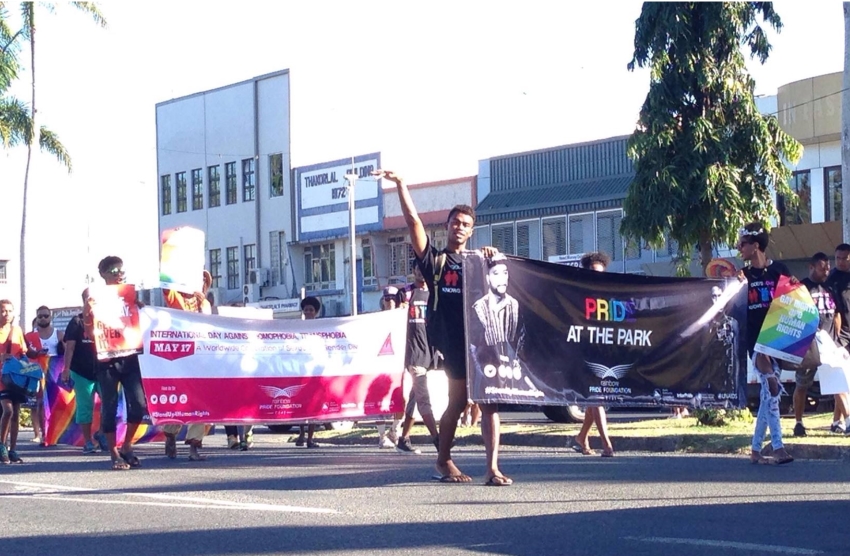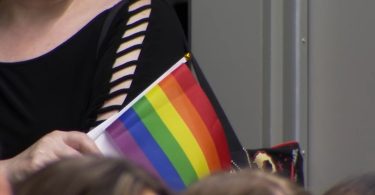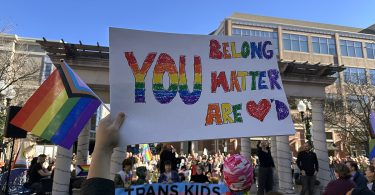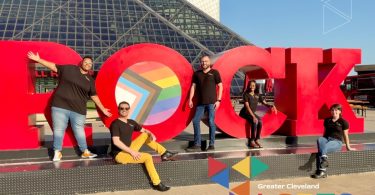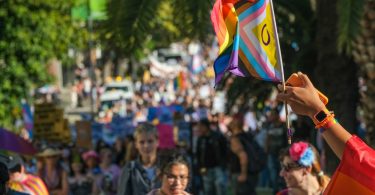Fiji became the first country in the Pacific to host a Pride parade. | Photo:
Rainbow Pride Foundation 4 LGBTQ Rights and Equality in Fiji
Fiji has just made history as the first country in the Pacific to host a LGBTI Pride parade.
The Pride March coincided with this year’s International Day Against Homophobia, Biphobia and Transphobia (IDAHOBT).
Rainbow Pride Foundation 4 LGBTQ Rights and Equality in Fiji organized the history making event. It decided to hold the parade in Fiji’s second biggest city, Lautoka, after police denied multiple requests to hold it in the capital, Suva.
Rainbow Pride Foundation’s executive director, Isikeli Vulavou said it was a ‘breakthrough’ to get permission to hold the parade. Local police even provided an escort for the 50 parade participants.
‘Being part of the parade, the participants shared on how liberating it was for them to call upon the public to realise that people of sexual and gender minorities exists, and are here to stay,’ Vulavou told Gay Star News.
‘For another, it was a historic moment, and was glad to be part of a time, when LGBTQI people were finally given a space to freely express themselves, have their voices heard on the streets, and simply being acknowledged for who they are.’
Fiji & the Pacific’S first ever GAY PRIDE march commemorating #IDAHOT day 🌈🌈🌈 pic.twitter.com/1ngKkV26CU
— TAMANI RARAMA (@Tamani_Rarama) 19 May 2018
LGBTI Pride in Fiji
Fiji is a small country in the South Pacific Ocean with a population of just under 900,000 people.
Homosexuality is legal in Fiji. It became the second country in the world to enshrine the rights of LGBTI people in its Constitution. South Africa was the first country to do so in 1994.
But LGBTI people still face discrimination and violence, sometimes even at the hands of their own families.
In 2012, police cancelled an already approved Pride March at the last minute because it ‘did not realise that this was a march for gays and lesbians’.
Even Fiji’s Prime Minister Frank Bainimarama is not very supportive of LGBTI people. He famously said in 2016 that all LGBTI people in Fiji should move to Iceland and stay there.
That’s why the parade was historic
The multiple cancellations of previous Pride events and discrimination faced by LGBTI people made last week’s parade very special.
‘It is important to hold public demonstrations like we did, so as to create and raise awareness about the existence of people of sexual and gender minorities, as we have our own set of challenges and struggles, and that LGBTQI people are often more vulnerable in most settings, including at their respective homes and families, workplaces and communities,’ Vulavou said.

